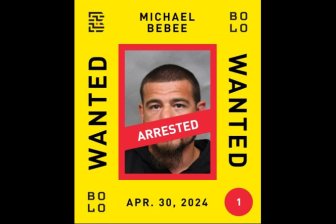For an entire year, the Drug User Liberation Front (DULF) has operated an illegal heroin, cocaine and methamphetamine compassion club and conducted a study.

The pilot study used 42 drug-using participants, giving them access to illicit drugs that have been tested and labelled to ensure participants know the “contents, potency and quality of the drugs.”
“Members of the compassion club are then able to come to a physical location and obtain this ‘community-regulated supply’ for up to 80 per cent cheaper than they would on the street,” DULF staff said in a social media post.
Over the year, DULF said there were 741 times a participant used drugs at its overdose prevention site, with zero overdoses on site.
After one year of collecting information, DULF said:
- Zero known deaths resulting from the substances provided by the club
- 32 per cent decrease of overdoses requiring naloxone in the entire study
- 68 per cent reduction of overdoses requiring naloxone in people who injected drugs
- 48 per cent reduction in the prevalence of police interactions per three-month period
- 50 per cent reduction in the prevalence of participant hospitalization per three-month period
- Prevented $100,643 of profit from going into the hands of organized crime
“With this pilot program we wanted to demonstrate what people who use drugs have known since this crisis began … (which is) access to a regulated, non-exploitative, and consistent supply of drugs saves lives, reduces crime, and improves the health of people who use drugs,” said Jeremy Kalicum, DULF’s co-founder.
“It is with profound frustration and unimaginable grief, that we ask for the government to act now and regulate the illicit market before more lives are lost.”
The advocacy group is urging the government to adopt the compassion club model and allow similar projects to operate within “high-needs communities” to prevent toxic drug overdose deaths.
It also found participants experienced a 39 per cent drop in drug-related violence and more than 75 per cent had reduced dependency on the drug black market ecosystem.
The compassion club’s location is being hidden by the group but is somewhere in B.C.
The full study report can be at dulf.ca. The study is not peer-reviewed.

The B.C. government did invest $1 billion through its 2023 Budget for the next three years in response to the toxic drug crisis.
It runs 92 drug-checking locations throughout the province, where British Columbians can drop off a drug sample for analysis.
The province is also expanding access to overdose prevention services in communities “hardest hit by the drug-poisoning crisis.”
“From January 2017 until the end of June 2023, there were more than 4.1 million visits to overdose prevention services (OPS) and supervised consumption sites, 25,840 overdoses responded to and survived, and one death,” Ministry of Mental Health and Addiction staff said in a release.
“The number of OPS sites has significantly increased — from one site in 2016 to 47 as of June 2023, including 19 sites offering inhalation services.”
B.C. is also the first province to offer prescribed safer supply.
People have been accessing prescribed safer supplies since March 2020, when the province introduced the first phase of the program. In June 2023, approximately 4,619 people were prescribed safer supply opioid medications (medical alternatives).
Through Budget 2023, the B.C. government is providing $184 million more over three years to support safer substance use for those living with mental health and addiction challenges.
Despite these measures, DULF said the province needs to up services to include the compassion club model.
The B.C. Ministry of Mental Health and Addiction offered a statement through email.
“The number of people who continue to lose their lives to the toxic drug supply is unacceptable and we’re doing everything we can to save lives and connect people to care,” a B.C. Ministry of Mental Health and Addiction spokesperson said.
“The province implemented the first phase of prescribed safe supply in BC and expanded it in July 2021 – the first and only province in Canada to do this. Prescribed safer supply is one way we’re working to separate people from toxic street drugs – keeping people alive so they have a chance to access health care supports, including treatment and recovery.”





Comments